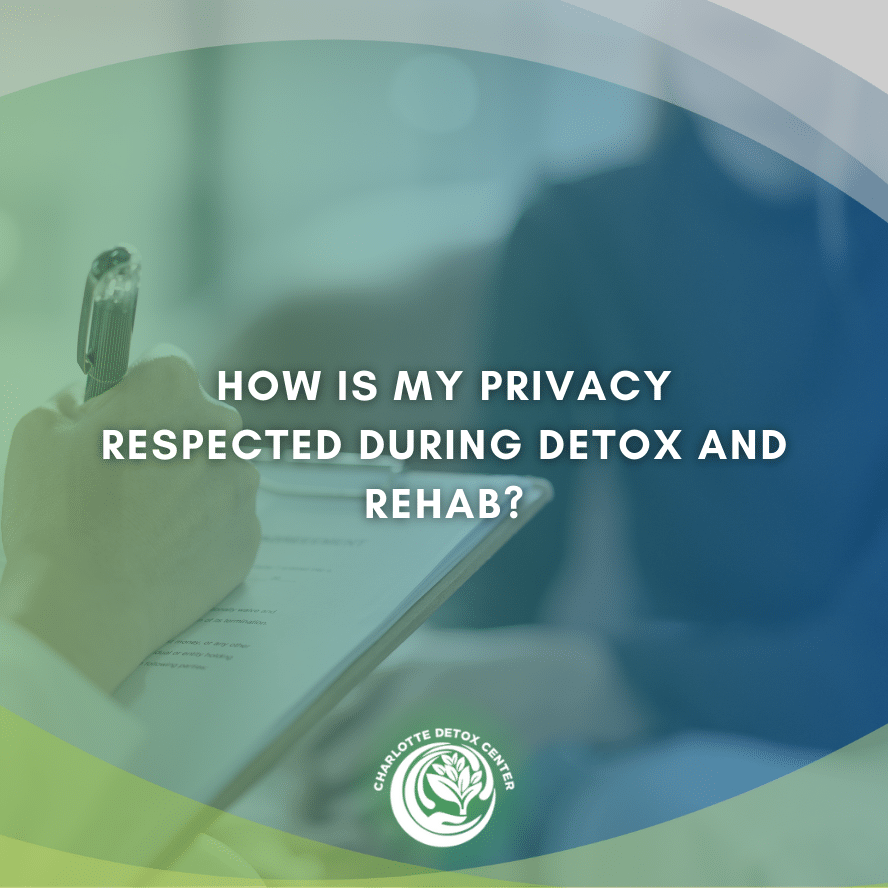How is My Privacy Respected During Detox and Rehab?

Medically Verified: 2/1/24
Medical Reviewer
Chief Editor

All of the information on this page has been reviewed and verified by a certified addiction professional.
Your privacy and confidentiality are of utmost importance when it comes to your health. If you are concerned about friends, family, employers, or others finding out about your treatment, you are not alone. This is a major concern among many people who seek addiction treatment.
Fortunately, there are several laws in place and provisions practiced that protect your privacy during detox and rehab.
Laws That Protect Your Privacy During Detox and Rehab
Whether you’re concerned about your privacy due to the social stigma surrounding addiction, future career opportunities, or personal reasons, you’ll be happy to know there are two federal laws in place that ensure your privacy and confidentiality when getting treatment for substance abuse: the Health Insurance Portability and Accountability Act (HIPAA) and the Confidentiality of Substance Use Disorder Patient Records regulations. All addiction treatment centers in the United States must oblige by these laws.
Health Insurance Portability and Accountability Act (HIPAA)
The Health Insurance Portability and Accountability Act (HIPAA) is a federal law that outlines how your medical records and Private Health Information (PHI) can be used. Under HIPAA, medical and behavioral health treatment providers cannot share your personal information without your written consent.
There are three ways HIPAA protects you:
- Unless you give written consent, your information cannot be shared unless it relates directly to your healthcare within the treatment facility.
- You have a right to request that your information is not shared with certain people, groups, companies, and insurers.
- You have the right to know who has seen your information, what information they saw, and to be notified whenever your information is shared with another person or entity.
If, at any point, you feel as though your HIPAA privacy rights have been violated, you may file a complaint with the government.
Confidentiality of Substance Use Disorder Patient Records
The Confidentiality of Substance Use Disorder and Patient Records regulation is a law that is similar to HIPAA but addresses the rights to privacy of patients seeking detox or substance abuse treatment. More specifically, Title 42 of the Code of Federal Regulations (CFR) Part 2 protects your information pertaining to your addiction. Title 24 CFR Part 2 states that treatment providers cannot identify you as someone who struggles with addiction or reveal that you have participated in an addiction treatment program.
In other words, treatment providers cannot tell other people that you are in rehab or that you have a substance use disorder without your written consent. The only exceptions to this law are in the event of:
- Court orders
- Cause of death certificate
- Medical emergency
- Crime
- Child abuse or neglect claims
Paperwork to Protect Your Privacy During Detox and Rehab
When you first arrive at a drug and alcohol detox or treatment center, you will go through an intake process where you must fill out paperwork. Some of this paperwork will be informing you of your patient privacy rights as well as how your information may be used. If you are concerned about your privacy, be sure to read this paperwork closely.
One type of paperwork you will have to sign is called a Release of Information (ROI) for your medical records. You will be able to request that your health information is not shared with certain individuals. You can also name certain individuals who do have a right to your health information–such as a parent, spouse, or trusted friend whom you want to keep up-to-date.
Exceptions To Privacy Laws
Although these federal laws are able to protect your privacy during detox and rehab, there are exceptions. Situations where your health information can be disclosed without your written consent include:
- Court orders or other legal purposes, such as to prove to a judge that you have received treatment for substance abuse after attaining a drug-related charge.
- Law enforcement investigations that connect you and your substance abuse to an active criminal investigation.
- Healthcare and insurance-related purposes to determine your treatment plan and/or insurance coverage.
These exceptions are rare and they shouldn’t prevent you from seeking the help you deserve. Leaving your addiction untreated will have far worse consequences than the release of your health information.
Start Your Recovery at Charlotte Detox Center Today
Here at Charlotte Detox Center, we understand that your privacy is important to you, which is why we abide by legal guidelines and do everything we can to respect your health information. During your stay with us, you will even have your own private room where you can have all the privacy you desire.
If you or a loved one are struggling with addiction, it’s time to ask for help. Our team of dedicated admissions coordinators is available at all hours of the day and night to assess your needs, verify your insurance, and help you enroll in our detox program. Don’t wait any longer. Call now to begin your recovery journey.
